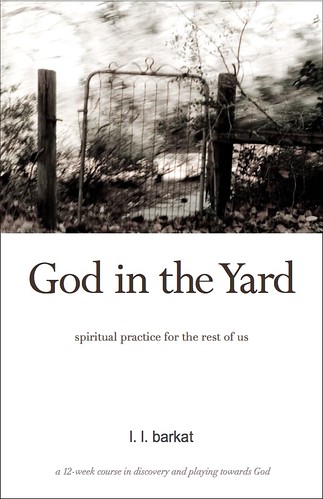What Voices Are We Hearing?
Now this is one of the trickiest chapters of all.
Chapter 7 of A Sunlit Absence, discusses "sharp trials of the intellect," wherein the person comes to see his faults more deeply—especially faults like vainglory, pride, envy, and judgment.
Why is this tricky?
Because just when we think we are discovering our faults and beginning to "break to pieces" under the weight of them (surely a sign of growth for the Contemplative), we may be doing something altogether different—and that is a kind of codependent acceptance that we are a terrible person, unworthy of people's affections, certainly unworthy of God's.
Is our discovery true?
Christian life carries this risk: we may think we are hearing the Voice of Truth declaring us selfish, unfriendly, arrogant (and as humans, we certainly can be!), when what we really may be hearing are the voices of loss, parental or cultural judgment, or our own self-deprecating fears.
I can think of no good way around this except the Song of Songs and its progression from love, to doubt-and-violence, to deeper love.
In the beginning, the Beloved and her Lover are almost high with love. It is Ideal, each viewing the other as perfect. In the center of the book, there is doubt and violence, as the Beloved has a terrible dream in which she's violated by both her Lover and the world outside their intimate love. In the final scenes, the Beloved comes up from the desert leaning on the arm of her Lover. The language of the Ideal is stripped away, but so is the language of doubt and violence. The Beloved appears tired or weak (as we all are, in the sense that we are "sinners"), yet she is accepted, bonded to her Lover as she leans into him.
What allows this bond? She and her Lover are no longer Perfect, but they do not live in a place of doubt-and-violence either.
Tricky again, here, because our Lover is God, always perfect. But can we see how important it is that we not live in a place of self-deprecation? For in that place, we simply cry in our chambers or wander the night and live assaulted by its terrors.
Becoming the Beloved, truly, is no simple journey. Maybe that is why the last scene in Song of Songs depicts the Beloved and her Lover coming up from the desert. And so the path is one we recognize: vineyard, to desert, to vineyard. A long and winding road.
Chapter 7 of A Sunlit Absence, discusses "sharp trials of the intellect," wherein the person comes to see his faults more deeply—especially faults like vainglory, pride, envy, and judgment.
Why is this tricky?
Because just when we think we are discovering our faults and beginning to "break to pieces" under the weight of them (surely a sign of growth for the Contemplative), we may be doing something altogether different—and that is a kind of codependent acceptance that we are a terrible person, unworthy of people's affections, certainly unworthy of God's.
Is our discovery true?
Christian life carries this risk: we may think we are hearing the Voice of Truth declaring us selfish, unfriendly, arrogant (and as humans, we certainly can be!), when what we really may be hearing are the voices of loss, parental or cultural judgment, or our own self-deprecating fears.
I can think of no good way around this except the Song of Songs and its progression from love, to doubt-and-violence, to deeper love.
In the beginning, the Beloved and her Lover are almost high with love. It is Ideal, each viewing the other as perfect. In the center of the book, there is doubt and violence, as the Beloved has a terrible dream in which she's violated by both her Lover and the world outside their intimate love. In the final scenes, the Beloved comes up from the desert leaning on the arm of her Lover. The language of the Ideal is stripped away, but so is the language of doubt and violence. The Beloved appears tired or weak (as we all are, in the sense that we are "sinners"), yet she is accepted, bonded to her Lover as she leans into him.
What allows this bond? She and her Lover are no longer Perfect, but they do not live in a place of doubt-and-violence either.
Tricky again, here, because our Lover is God, always perfect. But can we see how important it is that we not live in a place of self-deprecation? For in that place, we simply cry in our chambers or wander the night and live assaulted by its terrors.
Becoming the Beloved, truly, is no simple journey. Maybe that is why the last scene in Song of Songs depicts the Beloved and her Lover coming up from the desert. And so the path is one we recognize: vineyard, to desert, to vineyard. A long and winding road.
Labels: A Sunlit Absence, Martin Laird, Song of Songs, spiritual practice
















4 Comments:
Nice...
Reading this lovely post, I think again of the Chesterton quote, "There is a road from the eye to the heart that does not go through the intellect."
i do hear the voice of my own conviction. As I have thought about it, i simply repeat the accusations of others, put them in my own words, and repeat.
Hearing yourself speak the defeating words is the strongest voice in my head !
When I consider the fact that He thinks of me as his beloved, I'm left without words. Like now.
Post a Comment
Subscribe to Post Comments [Atom]
<< Home